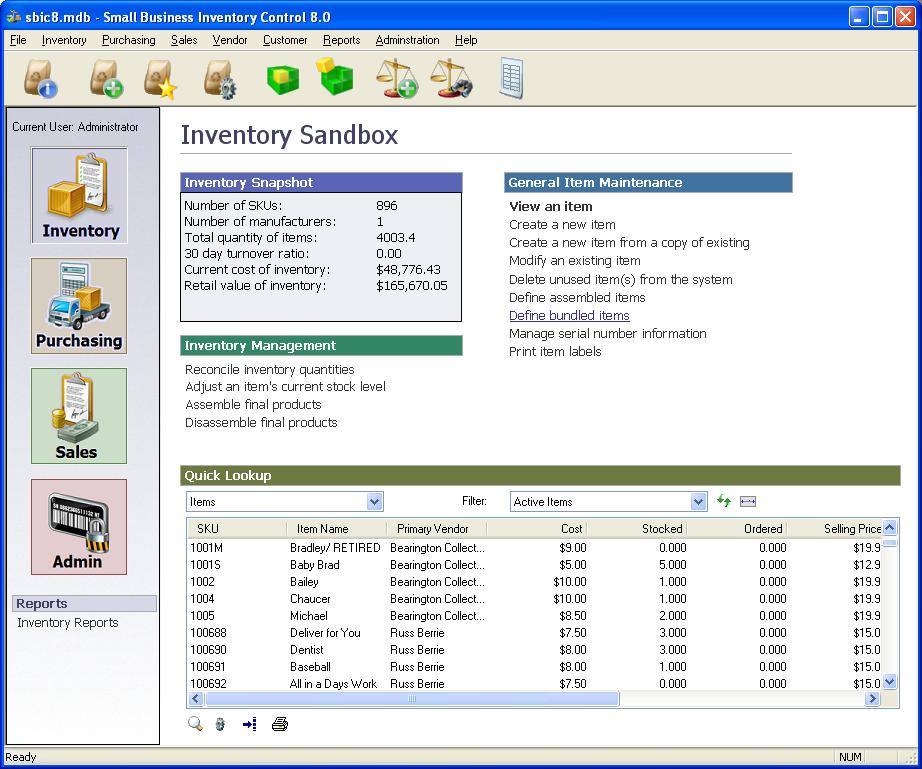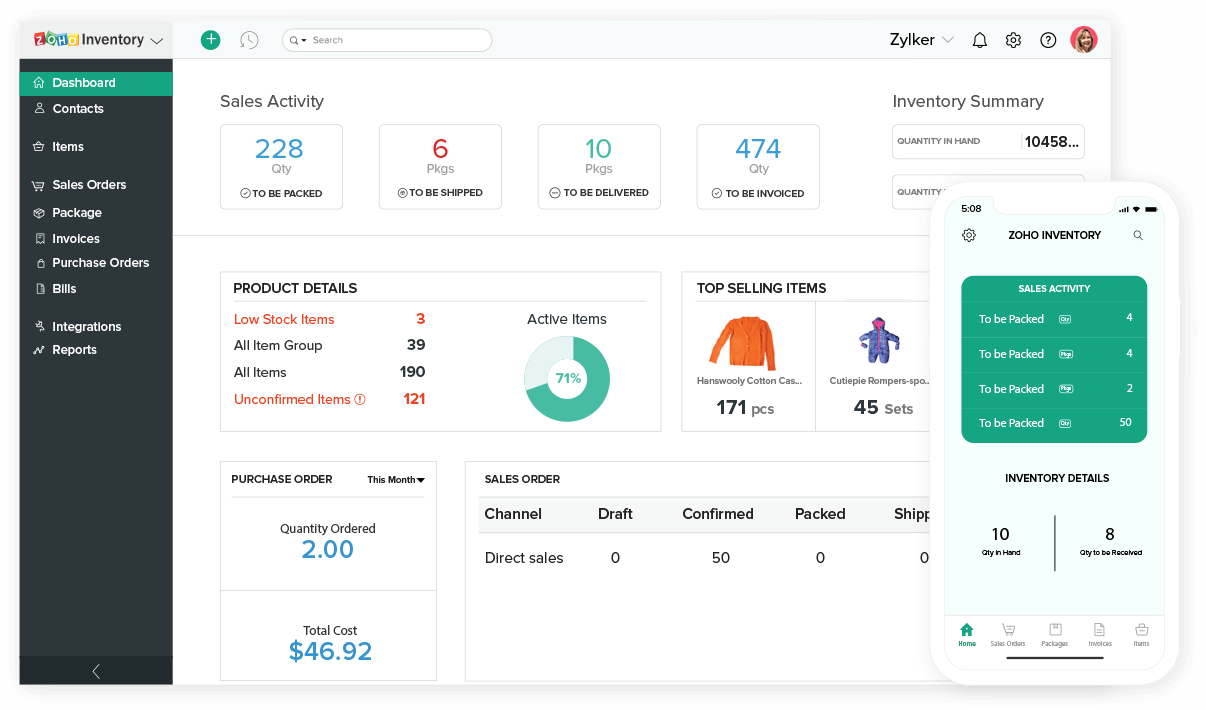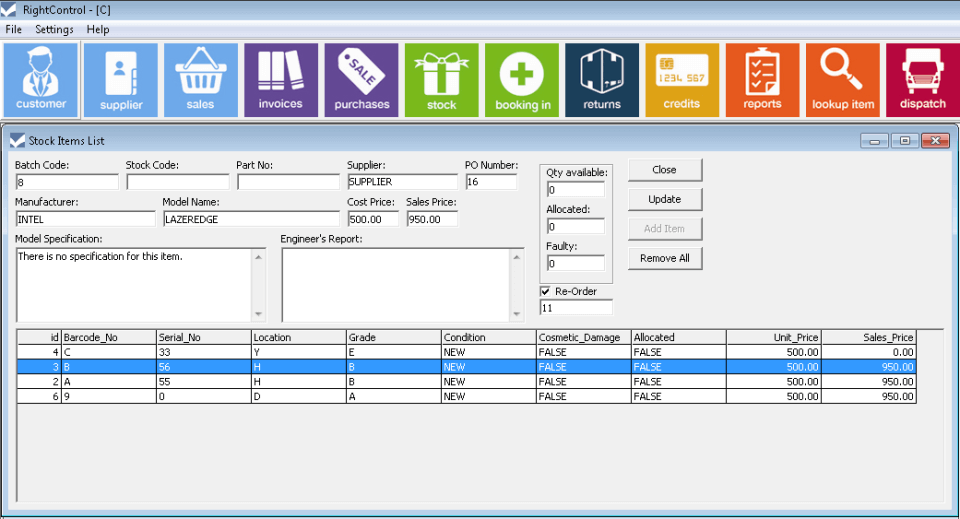In today’s fast-paced business landscape, efficient inventory management is crucial for optimizing operations and maximizing profitability. Business inventory control software has emerged as an indispensable tool, providing businesses with the power to streamline their inventory processes, reduce costs, and gain real-time visibility into their stock levels.
This comprehensive guide will delve into the world of business inventory control software, exploring its features, benefits, and applications. We’ll discuss best practices for implementation, integration, and effective utilization. Additionally, we’ll uncover emerging trends and innovations that are shaping the future of inventory management.
Definition and Overview of Business Inventory Control Software

Business inventory control software is a powerful tool that helps businesses track and manage their inventory levels. It provides a centralized platform for businesses to monitor stock levels, track orders, and generate reports. This software helps businesses to optimize their inventory levels, reduce costs, and improve customer service.
Key Benefits and Advantages
- Improved inventory accuracy:Inventory control software helps businesses to maintain accurate inventory records, reducing the risk of stockouts and overstocking.
- Reduced costs:By optimizing inventory levels, businesses can reduce their carrying costs and improve their cash flow.
- Improved customer service:Inventory control software helps businesses to fulfill orders more quickly and efficiently, improving customer satisfaction.
- Increased efficiency:Inventory control software automates many inventory management tasks, freeing up employees to focus on other tasks.
- Better decision-making:Inventory control software provides businesses with valuable insights into their inventory data, helping them to make better decisions about their inventory management practices.
Features and Capabilities
Business inventory control software empowers businesses with a robust suite of features and capabilities that streamline inventory management processes, enhance operational efficiency, and drive profitability. These features are designed to address the unique challenges of inventory management, providing real-time visibility, accurate tracking, and automated processes.
The essential features of business inventory control software include:
- Inventory Tracking:Real-time tracking of inventory levels across multiple locations, including warehouses, retail stores, and distribution centers.
- Demand Forecasting:Predictive analytics to forecast future demand based on historical data, seasonal trends, and market conditions.
- Purchase Order Management:Automated purchase order creation, approval, and tracking to ensure timely replenishment of inventory.
- Warehouse Management:Comprehensive management of warehouse operations, including inventory receiving, storage, and shipping.
- Reporting and Analytics:Detailed reporting and analytics to provide insights into inventory performance, identify trends, and optimize decision-making.
These features work together to streamline inventory management processes, reduce manual errors, and improve overall operational efficiency. They provide businesses with the tools they need to make informed decisions, optimize inventory levels, and minimize costs.
Inventory Tracking
Inventory tracking is a fundamental feature of business inventory control software. It enables businesses to track inventory levels in real-time across multiple locations, including warehouses, retail stores, and distribution centers. This provides a comprehensive view of inventory availability and allows businesses to make informed decisions about replenishment, allocation, and sales.
Inventory tracking systems typically use barcodes or RFID tags to identify and track individual items. This data is then stored in a central database, providing real-time visibility into inventory levels. The system can be configured to generate alerts when inventory levels fall below predefined thresholds, ensuring that businesses can proactively prevent stockouts and maintain optimal inventory levels.
Demand Forecasting
Demand forecasting is a critical feature of business inventory control software that helps businesses predict future demand for products. By analyzing historical data, seasonal trends, and market conditions, the software can generate accurate forecasts of future demand. This information is essential for planning production, purchasing, and inventory levels.
Accurate demand forecasting helps businesses avoid overstocking or understocking inventory. Overstocking can lead to increased storage costs, obsolescence, and reduced profitability. Understocking, on the other hand, can result in lost sales, customer dissatisfaction, and damage to reputation.
Types and Applications

Business inventory control software solutions vary based on specific business needs and industry requirements. These variations accommodate different inventory management strategies, product types, and business sizes.
The types of business inventory control software include:
- Perpetual Inventory System:Provides real-time updates on inventory levels, automatically adjusting stock quantities as transactions occur.
- Periodic Inventory System:Requires manual inventory counts at specific intervals, providing less frequent updates on stock levels.
- Cloud-Based Inventory Management:Hosted on remote servers, allowing for accessibility and collaboration from multiple locations.
- On-Premise Inventory Management:Installed and maintained on local servers, providing greater control and security.
- Barcode and RFID Inventory Management:Utilizes barcode or RFID technology to streamline inventory tracking and data collection.
Applications in Various Industries
Business inventory control software finds applications across diverse industries, including:
- Retail:Managing inventory levels in physical stores and online platforms, ensuring product availability and optimizing stock replenishment.
- Manufacturing:Tracking raw materials, work-in-progress, and finished goods, ensuring efficient production planning and supply chain management.
- Healthcare:Controlling medical supplies, pharmaceuticals, and equipment, ensuring patient safety and optimizing inventory levels.
- Distribution and Logistics:Managing inventory in warehouses and distribution centers, optimizing storage space, and facilitating efficient order fulfillment.
- Food and Beverage:Tracking perishable goods, managing inventory turnover, and ensuring food safety and quality control.
Future Trends and Innovations

The landscape of business inventory control software is constantly evolving, driven by advancements in technology and the changing needs of businesses. Here are some emerging trends and innovations that will shape the future of inventory management:
Real-time visibility and data analytics:Inventory control software is becoming increasingly sophisticated, providing real-time visibility into inventory levels, stock movements, and other key metrics. This data can be analyzed to identify trends, optimize inventory levels, and make better decisions about procurement and distribution.
Artificial Intelligence (AI) and Machine Learning (ML)
AI and ML are transforming inventory management by automating tasks, predicting demand, and optimizing inventory levels. AI-powered inventory control systems can learn from historical data and identify patterns, enabling businesses to make more accurate forecasts and reduce the risk of overstocking or understocking.
Cloud-based inventory management
Cloud-based inventory control software is becoming increasingly popular, as it offers several advantages over on-premise solutions. Cloud-based systems are more scalable, cost-effective, and accessible from anywhere with an internet connection. This makes them ideal for businesses of all sizes, particularly those with multiple locations or complex supply chains.
Integration with other business systems, Business inventory control software
Inventory control software is increasingly being integrated with other business systems, such as enterprise resource planning (ERP) systems and customer relationship management (CRM) systems. This integration allows businesses to streamline their operations, improve data accuracy, and gain a more comprehensive view of their business.
Mobile inventory management
Mobile inventory control apps are becoming increasingly common, enabling businesses to manage their inventory on the go. These apps allow users to scan barcodes, update inventory levels, and access real-time data from anywhere. This can significantly improve efficiency and productivity.
RFID and IoT
Radio frequency identification (RFID) and the Internet of Things (IoT) are also playing a significant role in the evolution of inventory control. RFID tags can be attached to individual items, enabling businesses to track their location and movement in real-time.
IoT devices can be used to monitor inventory levels and trigger alerts when stock is running low.
Closure

As businesses navigate the ever-changing landscape of inventory management, business inventory control software has proven to be an invaluable asset. By embracing the capabilities of this technology, organizations can empower themselves to optimize their inventory processes, gain valuable insights, and stay ahead of the competition.
With continuous advancements and innovations on the horizon, the future of inventory management holds immense promise for businesses seeking to streamline their operations and achieve greater success.
Key Questions Answered
What are the key benefits of using business inventory control software?
Business inventory control software offers numerous benefits, including improved inventory accuracy, reduced stockouts and overstocking, streamlined inventory processes, increased efficiency, and enhanced decision-making capabilities.
How does business inventory control software integrate with other business systems?
Business inventory control software can integrate with various business systems, such as ERP, CRM, and accounting software, enabling seamless data flow and eliminating manual data entry.
What are the different types of business inventory control software available?
There are several types of business inventory control software available, including perpetual inventory systems, periodic inventory systems, and just-in-time inventory systems. The choice of software depends on the specific needs and industry of the business.
How can business inventory control software help businesses save money?
Business inventory control software can help businesses save money by reducing inventory carrying costs, preventing stockouts, optimizing purchasing, and improving forecasting accuracy.